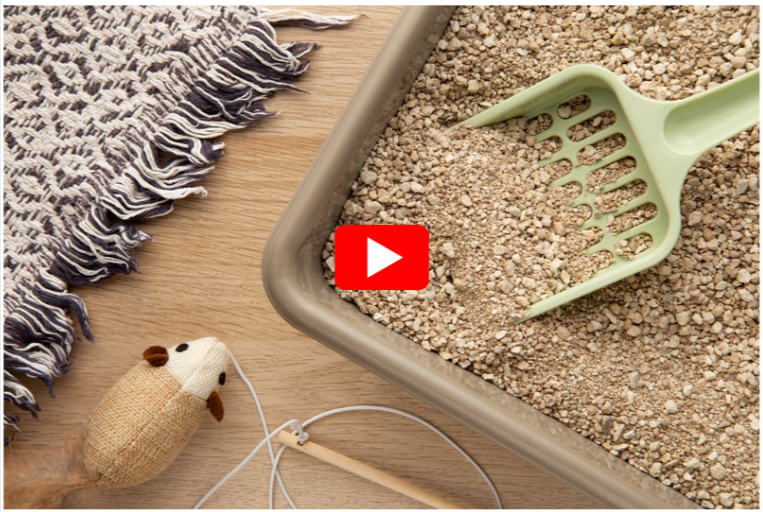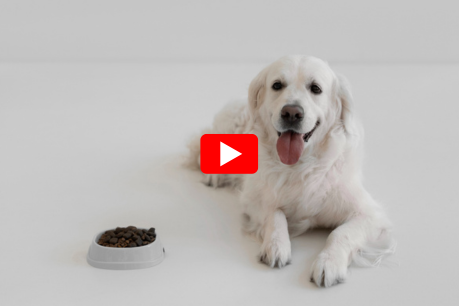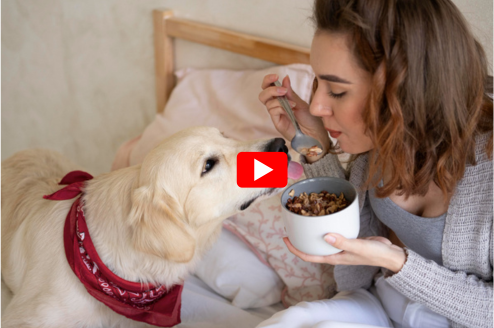Psyllium Powder for Dogs Constipation: Safe Relief Guide
Constipation is a common concern for many dog owners. It can cause discomfort, decreased appetite, and distress for your furry friend. Fortunately, there are safe and natural ways to help relieve constipation in dogs one popular and effective option is psyllium powder.
Psyllium powder is a natural, gentle fiber that helps relieve constipation in dogs by improving stool bulk and promoting regular bowel movements safely.
In this comprehensive guide, we’ll explore what constipation in dogs looks like, why psyllium powder works, how to use it safely, potential side effects, and tips for maintaining your dog’s digestive health.
Whether your dog is occasionally constipated or struggling with a more chronic issue, this guide will help you understand how psyllium powder can support your pet’s digestive wellness.
What Is Constipation in Dogs?
Constipation occurs when a dog has difficulty passing stools or produces hard, dry stools that are painful to pass. It often results in infrequent bowel movements or incomplete evacuation of the bowels.
Common signs of constipation in dogs include:
-
Straining or frequent attempts to defecate with little output
-
Hard, dry, or small stools
-
Abdominal discomfort or bloating
-
Decreased appetite or lethargy
-
Scooting or licking the anal area excessively
While occasional constipation can happen due to dietary changes or dehydration, persistent or severe constipation should be addressed promptly as it can lead to more serious health issues.
Causes of Constipation in Dogs
Understanding the root causes of constipation in dogs helps prevent future episodes and guide effective treatment. Common causes include:
-
Dehydration: Not enough water intake causes dry stools.
-
Low fiber diet: Lack of adequate dietary fiber reduces stool bulk and motility.
-
Lack of exercise: Physical activity helps stimulate bowel movements.
-
Pain or injury: Discomfort during defecation may cause dogs to hold it in.
-
Medical conditions: Conditions like hypothyroidism, kidney disease, or spinal injuries can affect digestion and elimination.
-
Medication side effects: Some medications may slow bowel movements.
-
Obstruction: Foreign objects or tumors blocking the colon require immediate vet care.
What Is Psyllium Powder?
Psyllium powder is a natural dietary fiber derived from the husks of Plantago ovata seeds. It is well known for its ability to absorb water and expand, forming a gel-like substance. This property helps bulk up stool and facilitates easier passage through the digestive tract.
In human health, psyllium has long been used to relieve constipation and maintain regularity. Similarly, it can benefit dogs by improving stool consistency and promoting healthy bowel movements.
How Psyllium Powder Helps Dogs with Constipation
The main way psyllium powder supports dogs experiencing constipation is through soluble fiber content:
-
Increases stool bulk: Psyllium absorbs water in the intestines, softening stool and increasing its size, which encourages the colon to contract and push waste out.
-
Regulates bowel movements: It helps normalize bowel function, easing both constipation and mild diarrhea by balancing water content in stool.
-
Promotes gut health: Fiber serves as a prebiotic, nourishing beneficial gut bacteria which supports overall digestive health.
-
Gentle and natural: Unlike harsh laxatives, psyllium works naturally without irritating the digestive tract or causing dependency.
How to Use Psyllium Powder for Dogs Constipation
Consult Your Veterinarian
Before introducing psyllium or any new dietary addition, speak to your veterinarian to ensure it’s appropriate for your dog’s specific health needs.
Determine the Right Dosage
Dosage depends on your dog’s weight and severity of constipation. A common guideline is:
-
Small dogs (up to 20 lbs): 1/4 to 1/2 teaspoon
-
Medium dogs (20-50 lbs): 1/2 to 1 teaspoon
-
Large dogs (over 50 lbs): 1 to 2 teaspoons
These amounts are generally mixed with your dog’s food once or twice daily. Starting with a smaller amount and gradually increasing can help your dog adjust.
Mix with Water or Food
Psyllium powder should always be given with plenty of water. Mix the powder into wet food or a small amount of water to prevent choking or digestive blockage.
Monitor Your Dog
Watch for improvements in stool consistency and frequency over several days. If constipation persists longer than 3 days or worsens, seek veterinary attention.
Safety Tips and Precautions
While psyllium powder is generally safe for most dogs, keep the following in mind:
-
Always provide plenty of fresh water. Psyllium works by absorbing water, so dehydration can worsen constipation.
-
Avoid giving psyllium on an empty stomach. Mixing it with food helps reduce any risk of irritation.
-
Start with a small dose. Gradual introduction reduces the chance of gas, bloating, or diarrhea.
-
Watch for allergies. Though rare, some dogs might have sensitivities to psyllium. Stop use if vomiting itching, or other reactions occur.
-
Do not use psyllium in dogs with bowel obstruction or swallowing difficulties. Immediate veterinary care is needed in those cases.
Signs That Your Dog Needs Veterinary Care
If your dog shows any of the following symptoms, contact your vet immediately:
-
Persistent vomiting or refusal to eat
-
Severe abdominal pain or bloating
-
Straining without passing stool for more than 48-72 hours
-
Blood in stool or rectal bleeding
-
Lethargy or weakness
These symptoms may indicate a serious underlying problem requiring professional treatment.
Other Natural Ways to Support Dog Digestive Health
Along with psyllium powder, consider these lifestyle and dietary tips to help maintain your dog’s digestive regularity:
-
Adequate hydration: Always ensure fresh water is available.
-
Balanced diet: Incorporate natural fiber sources like pumpkin, sweet potatoes, or green beans.
-
Regular exercise: Daily walks and play stimulate digestion.
-
Routine feeding schedule: Consistent meal times support predictable bowel movements.
-
Avoid table scraps: Fatty, processed, or low-fiber human foods can upset digestion.
What to Expect When Using Psyllium Powder
Most dogs will show improvement within 24-72 hours after starting psyllium powder, but some may take longer depending on the cause of constipation.
Expect stool to become softer, larger, and easier to pass. Your dog may also exhibit more frequent bowel movements. Mild gas or soft stools can happen initially but usually subside.
If your dog’s constipation is chronic or linked to an illness, psyllium can be part of a long-term digestive management plan advised by your vet.
Conclusion
Constipation can be uncomfortable and concerning for dogs and their owners, but psyllium powder offers a natural, effective way to promote relief and support healthy digestion. By increasing stool bulk and moisture, psyllium helps your dog pass stool comfortably and regularly.
Always consult your veterinarian before starting psyllium, especially if your dog has underlying health conditions or chronic digestive issues.
Combined with proper hydration, balanced nutrition, and regular exercise, psyllium powder can be an important tool in maintaining your dog’s digestive wellness.
With careful use and attention to your dog’s needs, you can help ensure your furry friend stays happy, healthy, and free from constipation.



